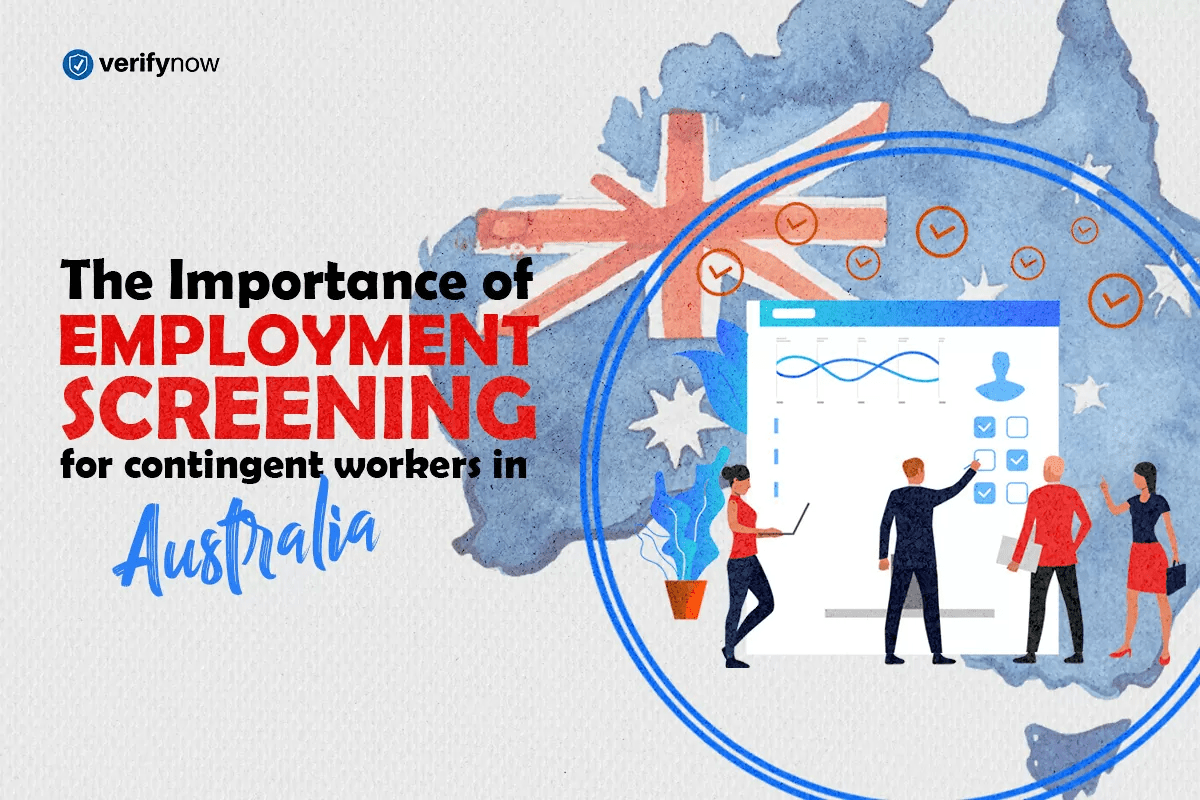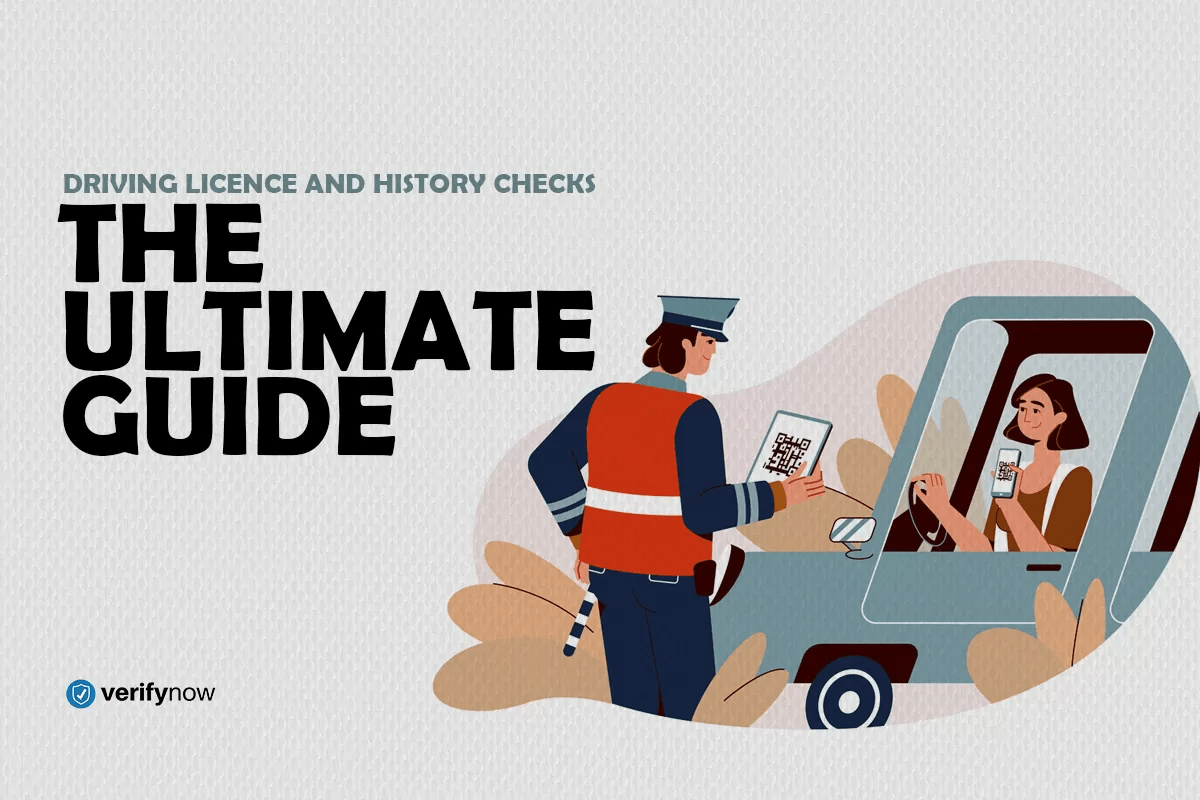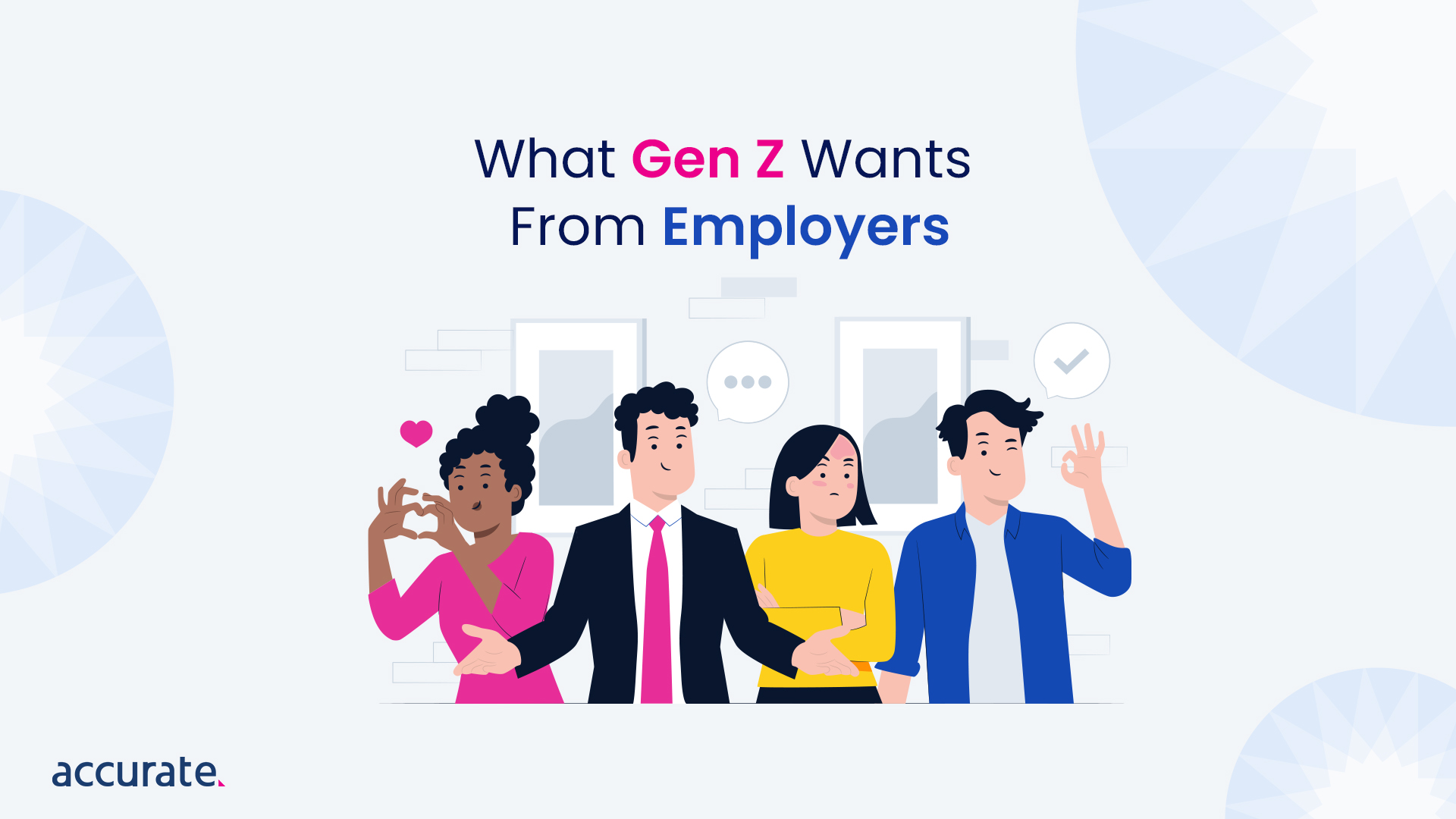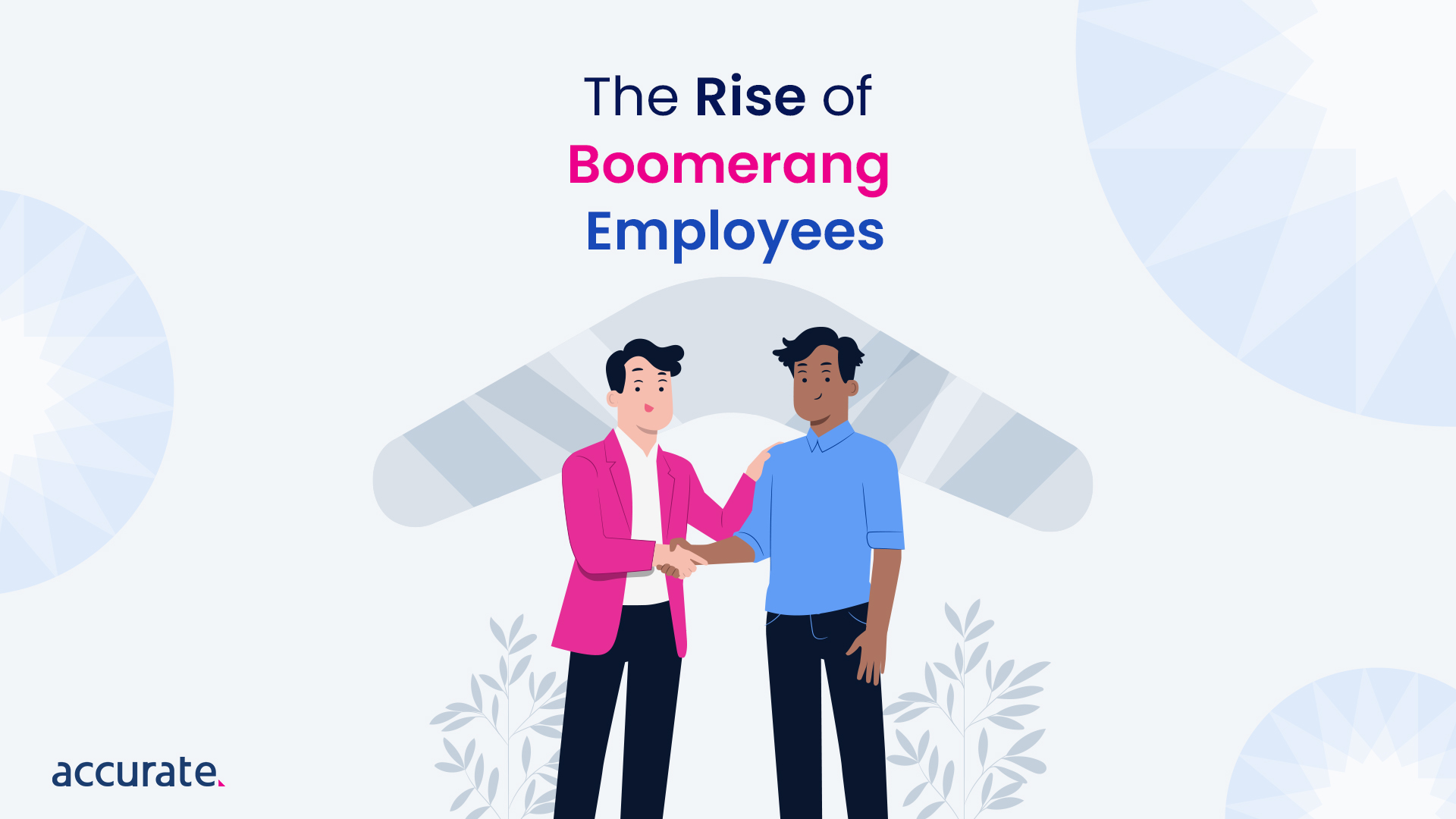The gig economy has been on a meteoric rise in recent years, revolutionising how businesses operate and shifting the dynamics of the traditional employment structure.
As companies increasingly embrace the flexibility and adaptability offered by contingent workers, it’s crucial not to overlook the significance of robust hiring processes for this expanding workforce.
Despite the temporary nature of contingent work, these individuals often have access to sensitive company information and resources, just like permanent employees. As a result, the risks associated with hiring contingent workers remain present, and screening them effectively is essential to maintaining the integrity and security of your organisation.
In this blog, we’ll delve into the importance of screening contingent workers and explore some effective strategies to ensure you’re hiring the right people for your business.
The Importance of Employment Screening
In the Australian job market, employment screening is essential when hiring new staff. This process gives you peace of mind by ensuring that the people you bring on board are reliable, trustworthy, and possess the right skills.
Defining Employment Screening
Employment screening is the process of verifying the information that a job candidate provides to ensure that they are suitable for the role. It involves checking their qualifications, references, criminal record, and overall employment history.
The purpose of these checks is to identify any potential risks that the candidate may pose to your organisation.
Benefits of Employment Screening
Employment screening has several benefits for organisations, including:
1. Reducing the Risk of Hiring the Wrong Person
Performing an employment screening will enable you to identify candidates who don’t fit the role. For example, you can check their criminal record to ensure they do not have a history of theft or fraud. This can help you avoid hiring someone who may pose a risk to your organisation.
2. Ensuring Compliance with Legal and Regulatory Requirements
In Australia, there are legal and regulatory requirements that organisations must comply with when hiring employees.
For example, you may be required to conduct a police check for certain roles in some sectors, such as in government or finance. The employment screening process can help you comply with these regulations.
3. Protecting Your Organisation’s Reputation
Hiring the wrong person can have a negative impact on your organisation’s reputation. For instance, if you hire someone who has a history of theft and they steal from your organisation, this can damage your reputation.
Employers can lessen the likelihood of hiring someone who can damage the reputation of their organisation by conducting employment screenings.
4. Improving the Quality of Hires
Employment screening can also help you identify candidates with the skills and experience required for the role.
Overall, investing in hiring the right person will improve the quality of your hires and ensure your organisation’s success.
This is an important benefit to consider, even during a talent drought.
5. Build Trust With Your New Hire And Your Existing Team
A comprehensive employment screening process plays a pivotal role in building trust within your team.
This process offers your existing team the assurance that the new hire joining them has been meticulously vetted, ensuring their trustworthiness and capability. On the other hand, for the new hire, it demonstrates your company’s commitment to investing time and resources to recruit the best, reinforcing the notion that they are joining a team of competent, trustworthy professionals.
The mutual trust fosters a robust and harmonious work environment, facilitating increased productivity and collaboration
Contingent Workers in Australia
As a business owner in Australia, you may have heard of the term “contingent workers.” These are individuals who work for your company on a temporary or contract basis.
They may include:
- Freelancers
- Independent contractors
- Temporary workers
- Consultants
If you hire contingent workers, they aren’t considered full-time employees of your company. Instead, you hire them to work on a specific project or for a set period of time.
They are generally not entitled to the same benefits as traditional employees, such as paid leave, sick days, and health insurance. And you usually pay contingent workers on an invoice basis.
Risks Associated with a Contingent Workforce
While contingent workers can be a cost-effective way to manage your workforce, there are risks associated with their employment.
These risks include:
- Legal risks: If you misclassify a contingent worker as an independent contractor when they should be classified as an employee, you may be liable for unpaid taxes, penalties, and interest.
- Security risks: Contingent workers may have access to sensitive company information, which can pose a security threat if you don’t conduct proper background checks.
- Reputation risks: If a contingent worker behaves unprofessionally or engages in unethical behaviour, it can damage your company’s reputation.
Employment Screening for Contingent Workforce Management
To mitigate these risks, you need to ensure that you conduct employment screening on all contingent workers before they begin working for your company.
Types of Employment Screening Checks
There are several types of employment screening checks that you can conduct for contingent workers in Australia.
These checks include:
- Identity Verifications: Examining government-issued documents like a driver’s license or passport can help you confirm a candidate’s identity and prevent identity theft.
- Right to Work Checks (VEVO): A Visa Entitlement Verification Online (VEVO) check ensures that candidates possess the appropriate work rights in Australia, keeping your company in line with immigration laws.
- National Coordinated Criminal History Check (ACIC) or Australian Federal Police (AFP) check for international workers: ACIC checks screen a candidate’s criminal history within Australia, while AFP checks are required for international workers. These police checks provide vital information about any past criminal activities.
- Employment History Checks: Verifying a candidate’s work history, including previous employers and positions held, helps ensure the candidate has the necessary experience and skills.
- Education Verification and Qualification Checks: Confirming a candidate’s educational background, including degrees, diplomas, and certifications, ensure that your contingent workers have the proper qualifications for their positions.
- Reference Checks: Speaking with a candidate’s former colleagues, supervisors, or employers offers valuable insights into their work ethic, reliability, and overall performance, helping you make well-informed hiring decisions.
Each of these checks can help you verify that the contingent worker is qualified for the job and doesn’t pose a risk to your organisation.
Best Practices for Employment Screening
When screening potential employees for contingent work in Australia, it is important to follow best practices to ensure a thorough and fair process. To achieve this, there are several steps you can take:
- Develop a clear and consistent screening policy that aligns with all the legal considerations.
- Obtain written consent from the contingent worker before conducting any checks.
- Use a reputable screening provider.
- Ensure that the screening process is fair and non-discriminatory.
- Keep all screening results confidential.
Using these best practices, you can ensure that you are screening contingent workers fairly and thoroughly so that you can identify those who are qualified and trustworthy.
Balancing the Need for Employment Screening with a Smooth Onboarding Experience
While employment screening is important, it’s also necessary to balance the need for screening with a smooth onboarding experience for the contingent worker. You don’t want to create a lengthy and cumbersome screening process that deters qualified candidates from applying for the job.
One way to balance the need for these checks with a smooth onboarding experience is to streamline the process as much as possible.
Use a third-party screening provider, like Accurate Background, that can quickly and efficiently conduct the necessary checks. Also, be transparent with the contingent worker about the process and what’s required of them.
Key Takeaways
When it comes to contingent workers, employment screening is just as important as it is for permanent employees.
Here are some key takeaways to keep in mind:
- The gig economy has led to a shift in traditional employment structures, increasing the reliance on contingent workers.
- Robust hiring processes, including employment screening, are essential for contingent workers, who often access sensitive information.
- Following best practices ensures a thorough, fair, and confidential process.
- Balancing the need for background checks with a smooth onboarding experience is essential to attract qualified candidates; using a third-party provider like Accurate Australia can simplify the process.
If you want to know more about Accurate Background’s screening process and how we can help you with your next contingent hire, contact us today.



